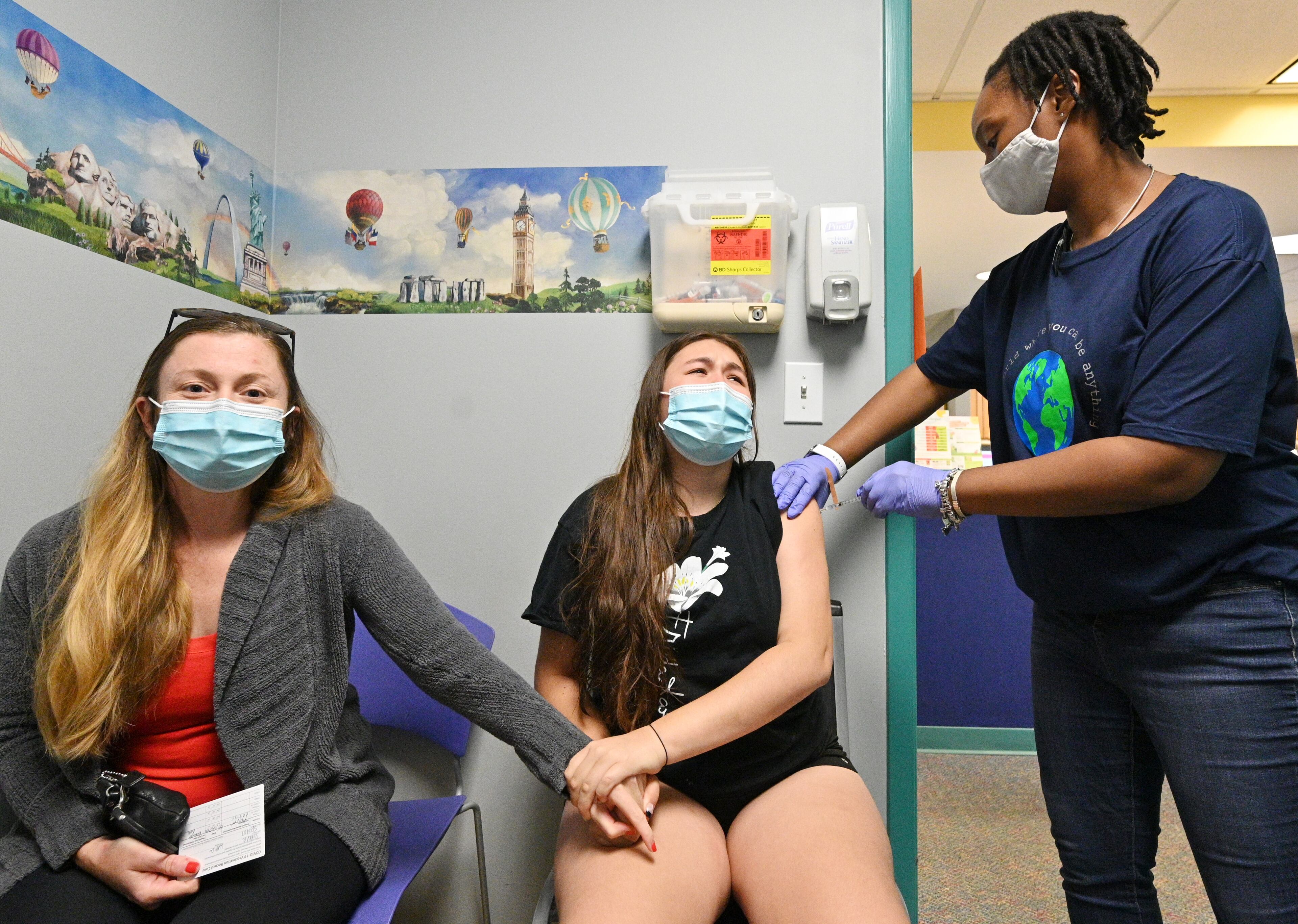Experts worry how COVID-19 will affect reopening schools in fall

Studies of the use of COVID-19 vaccine in children under 12 are underway but are unlikely to result in access before school starts this fall, leading to concerns about what might happen as schools reopen.
Additionally, the Pfizer-BioNTech vaccine can be administered to children as young as 12, but many parents are reluctant to give their kids a shot, leading to concerns that middle and high schools will also be places for the virus to spread as new, more infectious variants take hold.
As of Monday, at least 13,441 children aged 12-15 had gotten at least one shot of the two-dose Pfizer vaccine in Gwinnett County, according to the Georgia Department of Public Health. The county is home to Georgia’s largest school system and envelopes the smaller Buford City Schools. They have a combined enrollment of more than 60,000 students in grades 7-10, the span covering most kids that age, making for a vaccination rate of perhaps one in five.

The rates were higher in some of the big nearby districts, typically around one in three, although the state health agency data cannot account for the location of some 15,000 shots so the rates might be slightly higher. Even so, the numbers are far below the threshold for so-called “herd” immunity, a human firewall that all but halts the spread of infections.
Only 52% of Georgia adults had received at least one dose of the vaccine as of June 10, well below the national average of 63%, The Atlanta Journal-Constitution reported. At the current rate of vaccination, Georgia will not reach 70% — a goal President Joe Biden hoped to achieve by July 4 — for at least another four months, an AJC analysis showed. To achieve herd immunity, 70% to 90% of the population would have to have either completed the course of vaccination or acquired immunity from previous infection.
The low national vaccination rate among adults will require more children to be immunized to control the virus this fall, when new variants and the return to school threaten a surge in infections, health officials said.
“We will never get to the numbers to really cut transmission without immunizing children,” said Dr. Christopher Murray, director of the Institute for Health Metrics and Evaluation at the University of Washington. He spoke at an online symposium Wednesday with several medical experts, including Dr. Rochelle Walensky, head of the Centers for Disease Control and Prevention.
Parents have been cautious about vaccinating their children for a variety of reasons, including recent information about myocarditis — inflammation of the heart — connected with vaccination.
But numerous experts, Walensky included, said the benefits of vaccination far outweigh the risk.
Walensky said COVID-19 has resulted in 471 U.S. pediatric deaths, more than the flu in recent years. And children who get COVID-19 can suffer from long-term symptoms and from MIS-C, an inflammatory condition that has affected over 4,000 U.S. children and claimed an additional 36 U.S. pediatric deaths, she noted.
“We know these vaccines are safe. We know they’re extremely effective. And we know they protect our children not only from getting the disease themselves but also from transmitting it to others,” Walensky said.

Her agency published a report Tuesday that stressed the importance of getting the virus under control before school starts this fall. The Morbidity and Mortality Weekly Report said research suggests children suffer emotionally and academically when forced to attend online. Further, it reported that the online burden has fallen more heavily on children who are not white.
In Georgia, where school systems enrolling around 60% of the state’s 1.7 million students were among those submitting data, white students were 17% more likely to have been presented with an in-person option while students who are not white were 15% more likely to have had only a virtual option. This disparity was more pronounced in Georgia than in the South as a whole.
The report speculated that schools in urban areas were more likely to be online-only due to high rates of community infection and students with more health “challenges.” Those schools also tend to have more students of color.



